Exiled Queen Calls Iran's 1979 Revolution 'A Sedition'
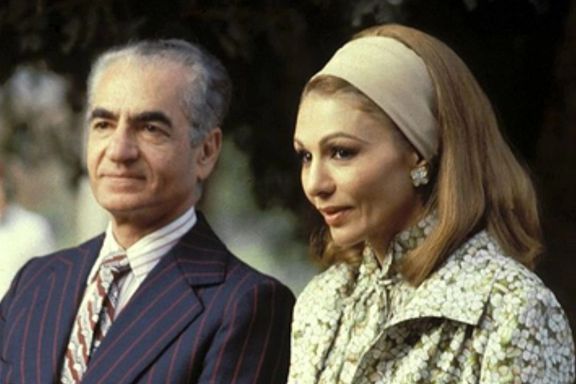
Exiled queen Farah Pahlavi in a message on the anniversary of the 1979 revolution has called the event a “sedition”, expressing hope that Iran can free itself from clerical rule.

Exiled queen Farah Pahlavi in a message on the anniversary of the 1979 revolution has called the event a “sedition”, expressing hope that Iran can free itself from clerical rule.
Farah Pahlavi, who married Mohammad Reza Shah at the age of 21 in 1959, is 83 years old and lives in Paris. She has come to be seen by many Iranians as a respected elder who campaigned for women’s rights during the secular monarchy.
The exiled queen said in a statement on Wednesday that she is certain “light will defeat darkness,” an implicit reference to pre-Islamic Iranian beliefs in a struggle between good and evil and the eventual triumph of light against darkness.
She expressed hope that all Iranians “who have the love of this ancient fatherland in their hearts” will unite to achieve victory over “gloom and hardships.”
In recent years as economic crisis and heavy-handed policies by the Islamic Republic have worsened, many Iranians have come to praise the Pahlavi dynasty for modernizing the country in the 20th century. On the anniversary of the revolution, many on social media condemn the 1979 revolution as a misguided step.
Islamic Republic’s top officials, increasingly disenchanted by the sharp turn in public mood, have reacted in their speeches and in government-controlled media. Supreme Leader Ali Khamenei this week condemned foreign-based Persian broadcasters for showing conditions in Iran before the revolution.

Hackers have released what they say are judiciary papers asking state spokesmen to say that ad hoc tribunals and a foreign court case broke international law.
The two documents categorized as “highly confidential” were passed last week by hackers Edalat-e Ali (Ali's Justice) to Iran International and other foreign Persian-language media outlets. There was also a document attributed to the Revolutionary Guards (IRGC) according to which discontent in Iran has tripled in a year.
The first document, purportedly a letter from the deputy prosecutor responsible for international cases to Tehran Revolutionary Prosecutor Ali Alghasi Mehr, refers to the London ‘Iran Atrocities Tribunal’ considering the 2019 fuel protests, the Iran Tribunal formed in The Hague in 2007 reviewing 1988 prison executions, and the Stockholm trial of former prison guard Hamid Nouri (Noury) over the 1988 executions.
In his letter, Mostafa Seyed Ashrafi, the deputy prosecutor, said that the foreign ministry, international affairs department in the president's office, government spokesman, judiciary spokesman, and the judiciary's Human Rights Headquarters should actively "explain that these tribunals and trials violate international laws.”
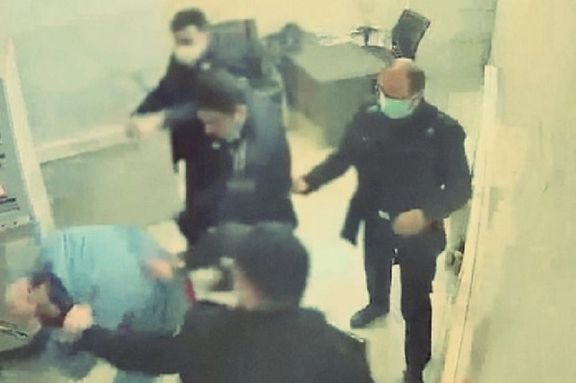
The letter, dated November 15, 2021, also advised unauthorized officials to "avoid making remarks on these events that may bear costs to the country,” citing a claim by deputy parliament speaker Hassan Norouzi, later denied, that he had been “one of those people” who opened fire during the 2019 disturbances.
Whereas the London and The Hague tribunals are non-state bodies whose ‘findings’ are symbolic or political, the Stockholm trial is conducted under Swedish law according to a principle of universal jurisdiction. Noury, who denies the charges, was arrested in 2019 and has been widely reported as guilty.
The second document, dated October 11 2020, is a letter from the International Deputy of the Judiciary Ali Bagheri-Kani, now deputy foreign minister, to then chief justice Ebrahim Raisi, after he visited Greater Tehran Penitentiary and met prisoners sentenced over the 2019 disturbances.
Prison visit
The letter said that people aged 19 to 27, who made up a large proportion of those jailed, had told him they had been coerced into confessing and suggested the cases should be reinvestigated and perhaps included in an amnesty that Supreme Leader Ali Khamenei was reportedly planning.
"All of them wanted to be freed at least conditionally,” the letter said. “Some of the younger ones begged and even cried and asked for help.” Such measures would "hugely blunt the sharp blades of the Western and human rights organizations,” it claimed.
The Edalat-e Ali hackers appeared last August in circulating footage from security cameras in Tehran's Evin prison and more recently hacked into state television's coverage of an Iran-United Arab Emirates football match with a video showing Guy Fox masks from the 2005 US-British film V for Vendetta.
The group, whose provenance remains unknown, claimed they wanted to turn the ten-day celebration of the 1979 Revolution into "the funeral of the Islamic Republic.”
Edalat-e Ali group's name evokes the first of the twelve Shiite Imams, Ali, but may also refer to Supreme Leader Ali Khamenei.
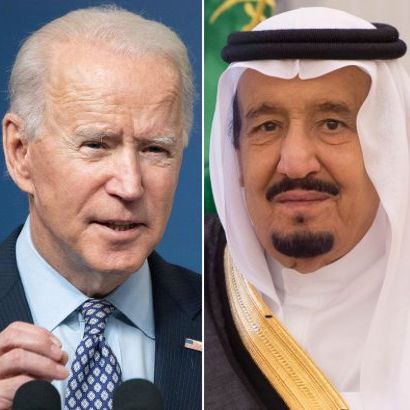
US President Joe Biden and King Salman of Saudi Arabia discussed energy supplies amid soaring prices and regional issues, including Iran and Yemen, Wednesday.
"The two leaders committed to ensuring the stability of global energy supplies," the White House said in a statement.
Salman, emphasized the need to maintain the supply agreement OPEC has with its allies including Russia, a group known as OPEC+.
Saudi Arabia, along other producers cut exports in April 2020 as the Covid-19 pandemic sharply reduced demand, but later decided to maintain most of the reduction, increasing production incrementally.
Global crude prices, which have rallied about 20% this year, are likely to surpass $100 a barrel because of a weaker-than- expected hit to demand from the Omicron variant of coronavirus, analysts have said.
International Brent oil settled nearly 1% higher, at $91.55 a barrel, on Wednesday.
High oil prices are a risk to the Biden administration ahead of November's congressional elections in which his fellow Democrats will defend slim majorities in the Senate and US House of Representatives.
The White House said that on the call, Biden also repeated the commitment of the United States to support Saudi Arabia in defending itself against attacks by Yemen's Iran-aligned Houthi group, the White House said.
Biden also briefed Salman on international talks revive the 2015 nuclear agreement (JCPOA) to "re-establish constraints on Iran's nuclear program," the White House said.
Saudi Arabia along with its Persian Gulf allies and Israel eye the talks with apprehension as the revival of the agreement will not constrain Iran’s ballistic missile program and aggressive regional policies.
In recent weeks, Iran-backed Houthis have fired missiles at the United Arab Emirates, in a rare escalation, which is believed to have had Tehran’s blessing as most of Houthi weapons are supplied by Iran.
The conflict in Yemen is largely seen as a proxy war between Saudi Arabia and Iran. The Houthis, who ousted the government from the capital, Sanaa, in late 2014, say they are fighting a corrupt system and foreign aggression.
Salman told Biden that Saudi Arabia wanted there to be a "political resolution" in Yemen, SPA said.
A US source familiar with the call said, "Saudi Arabia has historically played a vital role in ensuring global energy markets are well supplied to support strong and resilient economies.
"The president noted that it is especially important now, during this time of geopolitical instability and global recovery," said the source, who spoke on condition of anonymity.
Oil has also been supported by the tension in Ukraine as Russia has put more than 100,000 troops on its borders.
US Secretary of State Antony Blinken said this week the administration has been in coordination with allies and partners including on "how best to share energy reserves in the event that Russia turns off the spigot or initiates a conflict that disrupts the flow of gas through Ukraine".
That was an apparent reference to both the potential of oil and natural gas cutoffs in the aftermath of any invasion by Moscow.
Biden's last call with Salman was reported about a year ago around the time of the release of a US assessment that said Saudi Crown Prince Mohammed bin Salman, the king's son, approved an operation to capture or kill murdered journalist Jamal Khashoggi in 2018.
With reporting by Reuters
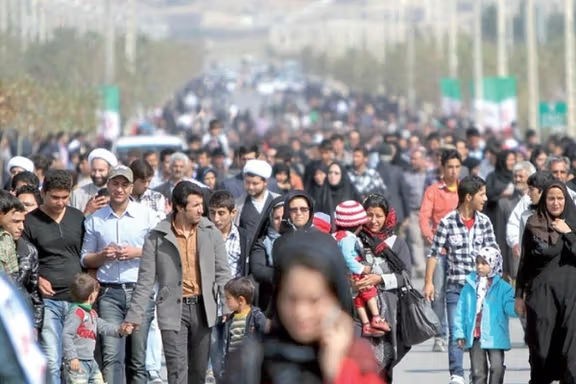
Iran ranks last among the 150 countries in terms of the ratio of health economy volume to GDP, the World Health Institute has revealed.
According to the latest ranking released by the nonprofit Global Wellness Institute on Tuesday, the Islamic Republic sits at the bottom of the list with the ratio of health economy to GDP of only 1.4 percent.
The report is packed with information on national wellness markets from average wellness spending per capita to the wellness market’s contribution to each nation’s overall economy.
In the per capita expenditures in the health sector, Iran ranked 116th with $142 spent on health by each Iranian in 2020, lower than Equatorial Guinea and Sri Lanka.
The total size of Iran's health economy in 2020 amounted to nearly $12 billion, about 1.4 percent of the total economy that put the country on the 45th place in the world.
The top wellness markets were US, China, and Japan with $1.2 trillion, $683 billion, and $304 billion, respectively, while consumers spent the most on wellness in Switzerland ($4,372), Iceland ($3,728), and US ($3,685).
On top of high inflation rate, prices have risen dramatically in the previous three years. Wage earners have cut back on consumption of basic nutritious food, such as meat, fruits and dairy products.
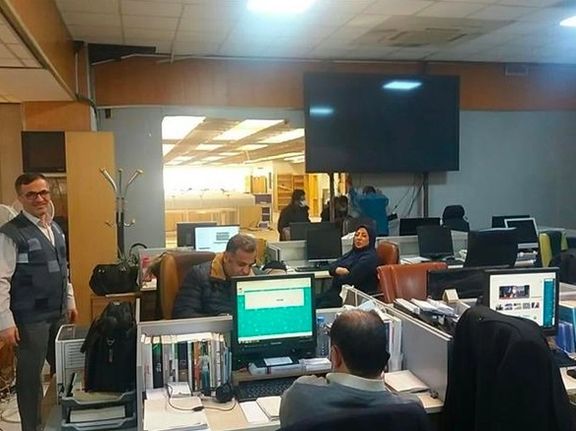
In an exclusive report on Wednesday, Iran International TV broke the news about the imminent closure of most of Iranian state television’s bureaus abroad.
The information acquired by Iran International said that the Islamic Republic of Iran Broadcasting organization (IRIB) might keep only two of its bureaus, in London and New York, and shut its offices in other capitals while also firing most of its correspondents abroad.
The news came only one day after Supreme Leader Ali Khamenei who supervises the organization and appoints its chief executive called for carrying out a global publicity stunt, which he named "vindication jihad" to explain his ideology and "vision" to the world.
IRIB has already terminated the contracts of some of its foreign correspondents. The IRIB correspondent in Ukraine joined IRIGC-linked Fars news agency immediately after his dismissal and started filing reports from Kyiv.
Until 2012, IRIB operated dozens of bureaus from the Far East to South America, but because of the financial crunch, resulting from differences between former President Mahmoud Ahmadinejad and IRIB’s management at the time, most of those offices were closed between 2012 and 2014. The New York bureau is embedded in Iran's UN mission.
Meanwhile to save funds, IRIB has decided to use products from its external channels, Press TV (in English) and Al-Alam (in Arabic), in its domestic programs. The broadcaster has also reportedly consolidated its news gathering units in a bid to further centralize TV news dissemination.
IRGC influence growing
A recent Iran International report revealed that in the centralized system, IRGC intelligence officers rather than IRIB journalists are involved in the production of news programs.
The news service which used to be called the Central News Bureau was re-branded as the IRIB Newsroom. A couple of news bulletins including the notorious 20:30 slot on channel 2 are reportedly linked to the intelligence agencies.
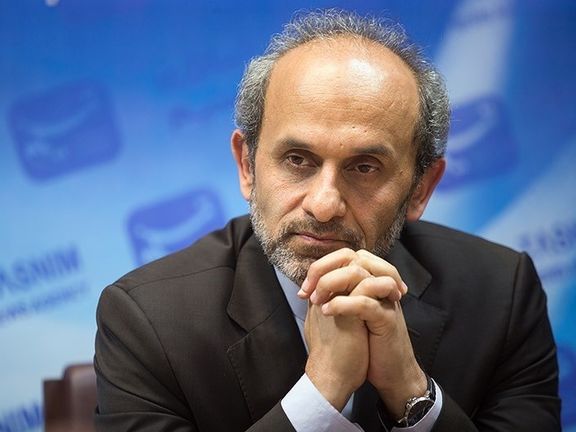
The Revolutionary Guard (IRGC) once operated the Al-Alam channel in Arabic and Ofogh channel in Persian, almost independent of the IRIB management although the channels have always been part of its media fleet. But since last year when Peyman Jebelli who is linked to Khamenei's office and IRGC took over as the organization's chief, the Guards effectively controls all of IRIB's more than fifty channels.
Reports from Tehran indicate that the changes are carried out by Jebelli's deputy Vahid Jalili, a brother of hardliner former nuclear negotiator Saeed Jalili and the organization's news director Alireza Khodabakhshi, who is also a close relative of Jalili.
As part of the changes, the Young Journalists’ Club, a hardliner news outlet with links to the IRGC will merge with IRIB’s Newsroom and the organization's rolling news channel IRINN (The Islamic Republic of Iran News Network aka Channel 6).
Meanwhile, information received by Iran International TV indicate that several reporters affiliated with IRGC who used to work with its Fars and Tasnim news agencies have been hired and are currently working as reporters, editors and advisors in various parts of the state television's news service.
It is still not known whether the new developments are part of measures to save money to cope with the overall financial crisis in Iran, or are part of policies to tighten government control. The organization was twice hacked during the past two weeks and its programs were taken off the air and replaced with dissident messages.
Many critics and political analysts have noted that IRIB's viewership has dramatically declined, and politicians have often expressed concern that the state TV is no longer the people's point of reference for news and current affairs. Apart from annoying constant spread of regime ideology, dull programming, strict control and censorship of the news, the proliferation of social media and uncensored news beamed into Iran by foreign-based satellite televisions have contributed to the gradual decline of its audience.
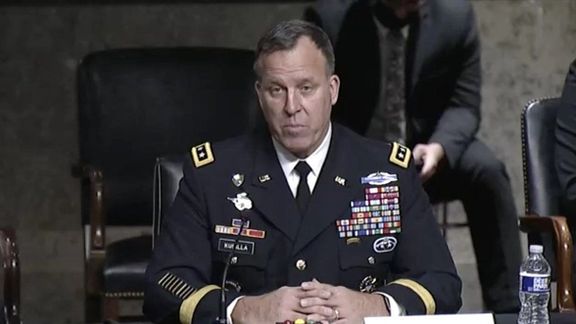
President Joe Biden's pick for the next CENTCOM commander has admitted that Iran can use sanctions relief to support terrorist activities in the Middle East.
Lieutenant General Michael Kurilla made the remarks during his nomination hearing in the US Senate on Tuesday.
Senator Jim Inhofe, a ranking member of the Senate Armed Services Committee who delivered the opening address at the hearing, told Kurilla that reentering “the failed 2015 nuclear deal” enables the Islamic Republic to “receive substantial sanctions relief… Iran will spend that windfall on terrorist proxies”.
“That means more arms for Hezbollah and Hamas to attack Israel, more training for the Houthis to threaten our Arab friends, and more support for the Iraqi militias that target our personnel”, Inhofe added.
Kurilla replied, “There is a risk that Iran would use some of that money to support its proxies and terrorism in the region”, adding that this put US troops in the Middle East at a greater risk.
Inhofe also expressed concerns that “things will soon get even worse”, noting that “rejoining the Iran nuclear deal won’t prevent Iran from getting nuclear weapons capabilities. The deal’s limitations expire in 2026, which is not too far off.”
Iranian proxies have begun using drones in attacks in Iraq and Syria in recent months, while Yemen's Iran-backed Houthi movement is repeatedly firing drones at Saudi Arabia and UAE.